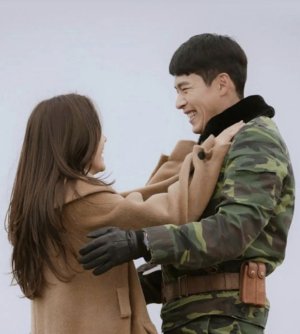
There are great dramas, then there is "My Ahjussi"
After finishing “My Ahjussi” (My Mister/나의 아저씨, 2018), I’m certain there are no words that can possibly do it justice, but I owe it to this absolute precious gift of a drama to at least try. First of all, I hesitate to even refer to My Ahjussi as a K-drama because it doesn’t feel like one; it’s more like a movie in 16 parts. It’s unlike anything I’ve ever seen and I agree with the K-drama sunbaes who say there may never be anything like it ever again. It’s that rare of a gem.It took me a while to build up the courage to revisit this — I watched just three episodes a few months ago and paused — because I thought it might be too depressing. I’m glad I listened to my friends who said that despite its heaviness, it’s actually uplifting and satisfying. They were absolutely right: in my eyes, My Ahjussi is THE definition of a healing drama. Its message is simple, clear, and beautiful: that kindness has the transformative power to heal even the most wounded among us, that relationships are precious and amazing, that love in any form–even in ways that are hard to label or define—can help us get through the struggles of life.
Every aspect of this wonderful story came together beautifully to deliver that message: the thoughtful direction, the lighting which is a character on its own, the delicate OST, the insightful script, and the powerful, career-defining performances from its leads and supporting cast.
Lee Sun-kyun inhabited the character of Park Dong-hoon, a kind, upright, and compassionate structural engineer who quietly bears the burden of middle-age, with dignity and strength. Although he may be extraordinarily kind, he is no pushover and will not hesitate to defend those who need defending.
Lee Ji-eun (IU) is breathtaking as Lee Ji-an, a cold, hard, and cynical young girl who carries the weight of a “30,000 year old soul” in her diminutive frame. A temporary office worker at the same company as Dong-hoon, life’s unjust cruelty towards her keeps forcing her hand, driving her to cunningly manipulate people and situations in order to survive, regardless of who gets hurt.
I also grew attached to Dong-hoon’s family, especially his two brothers whose constant misfortune burdens their mother, and his tightly knit neighborhood community. All the characters are sad and broken in their own way, but the middle-aged antics and drama of his brothers and the rest of the Hugye ahjussis and ahjummas, their habit of ruminating over their troubles over soju, provide levity and comic relief. It never feels like you’re laughing at them, but with them.
I think what sets My Ahjussi apart from the rest is its realism, rawness, the melancholy that runs through it, its “flawless depiction of the human condition”-- in the words of Paulo Coelho. For those who are interested in Korean culture, look up “han” and “jeong” — two uniquely Korean concepts that are perfectly embodied here.
My only problem with My Ahjussi is that I’m afraid it’s going to ruin everything I watch from now on. I’m just going to have to keep reminding myself that it would be unfair to judge other shows by the impossibly high standards this has set — otherwise I won’t be able to enjoy anything else.
One of my greatest simple pleasures from the past months is getting personal messages from friends who’ve enjoyed the dramas they watched upon my recommendation. Because it brings me so much joy to share my happiness, I've made it my personal mission to get as many people as possible to watch this masterpiece, my new favorite show (not just Korean, but of any origin).
Esta resenha foi útil para você?




